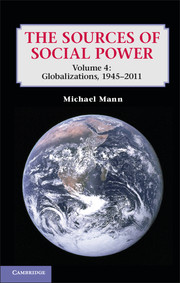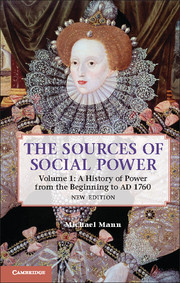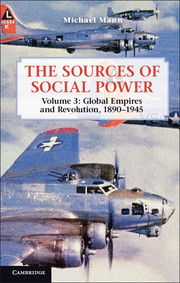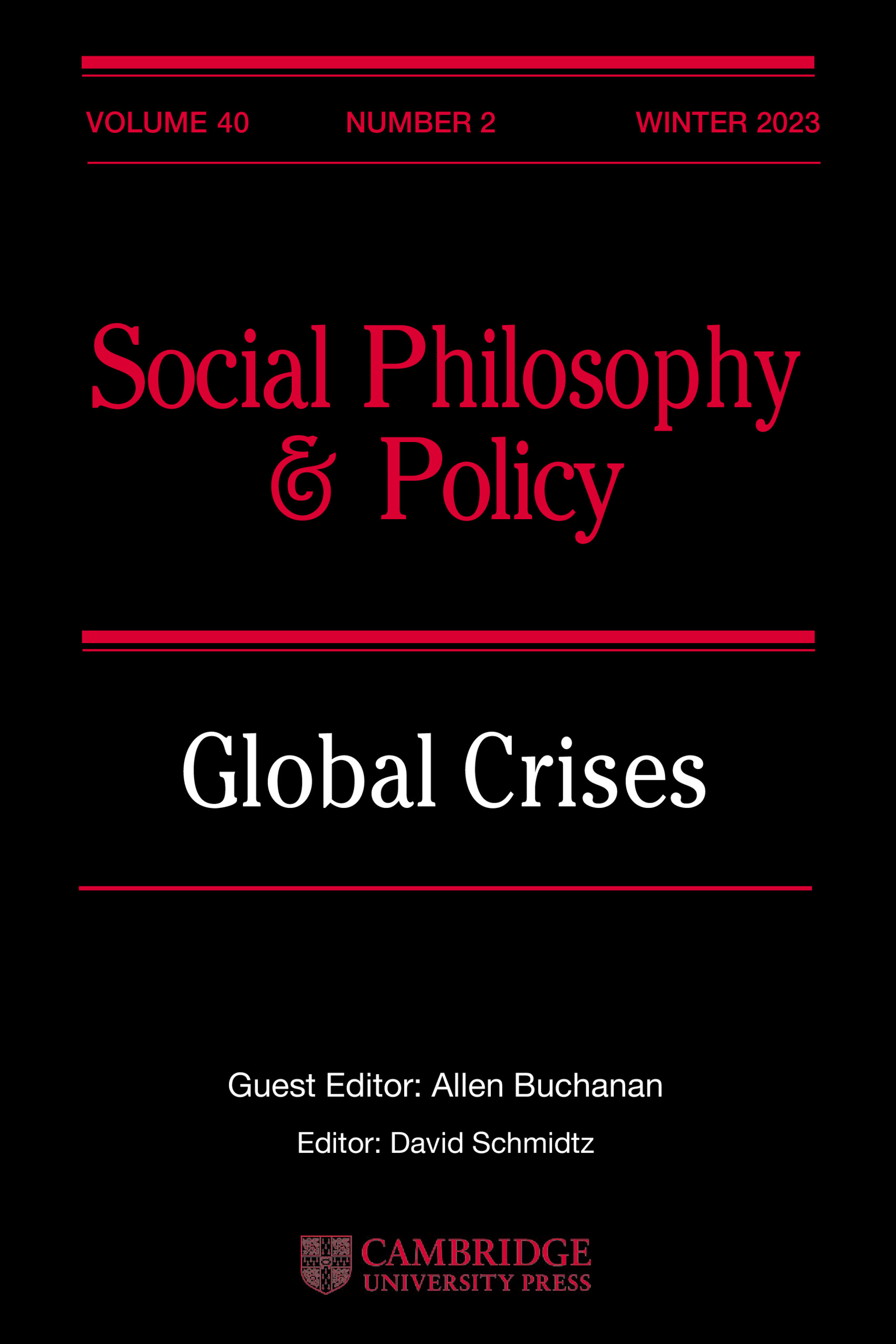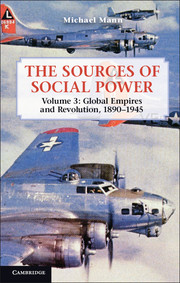The Sources of Social Power
Volume 4. Globalizations, 1945–2011
- Author: Michael Mann, University of California, Los Angeles
- Date Published: February 2013
- availability: Available
- format: Hardback
- isbn: 9781107028678
Hardback
Other available formats:
Paperback, eBook
Looking for an inspection copy?
This title is not currently available on inspection
-
Distinguishing four sources of power – ideological, economic, military and political – this series traces their interrelations throughout human history. This fourth volume covers the period from 1945 to the present, focusing on the three major pillars of post-war global order: capitalism, the nation-state system and the sole remaining empire of the world, the United States. In the course of this period, capitalism, nation-states and empires interacted with one another and were transformed. Mann's key argument is that globalization is not just a single process, because there are globalizations of all four sources of social power, each of which has a different rhythm of development. Topics include the rise and beginnings of decline of the American Empire, the fall or transformation of communism (respectively, the Soviet Union and China), the shift from neo-Keynesianism to neoliberalism, and the three great crises emerging in this period – nuclear weapons, the great recession and climate change.
Read more- Concluding volume of Mann's magnum opus of social power in human history, covering the contemporary age, from 1945 to the present
- Focuses on the relationship between the sources of social power and increasing globalization, from the emergence of the sole remaining world empire to the current concerns about climate change
- Gives a general explanation of the modern age that appeals to both historians and social scientists
Reviews & endorsements
'No one is better than Michael Mann at synthesizing the best research and extracting key patterns, and no one is more interesting and informative at a high intellectual level. This volume explains why the World Wars were the structural turning points of the twentieth century; how the rise of identity politics and social movements defocused the class mobilization which most effectively produces universal social citizenship rights; why the crisis of climate change is very hard to stop because it is based on all the dominant institutions gone global - capitalism, autonomous nation states, and consumer rights. Mann also shows that atrocities caused by market transitions, in terms of deaths, are not very different from those of the most coercive ideological states. There is no better guide to our own times and future.' Randall Collins, University of Pennsylvania
See more reviews'Globalizations, 1945–2011 brings together macrosociology and political economy, offering an encompassing perspective on the postwar world, concluding its author's enormously ambitious four-volume effort to explore the sources of social power, from the beginnings of civilization until today. Mann writes history as a sociologist, guided by an abiding interest in theory and structuring his narrative into a flexibly evolving analytical framework. Capitalism is at the center: the postwar settlement in the West and its neoliberal transformation since the 1970s, coinciding with the spread of markets around the globe, from the United States to Europe, Russia, and China.' Wolfgang Streeck, Max Planck Institute for the Study of Societies
'Mann comes closer to his 'history of power in human societies' in these two volumes than in the previous ones. It is hard to think of other works of this scope by social scientists. … Readers looking for something like a truly global history of power over the past century and a half will find much to ponder here. The overarching result is predictable, considering the author: Mann tackles these topics masterfully. He explains each development with élan, sometimes upending dominant interpretations and often pushing at the edges of received wisdom … These last two volumes, along with the previous two, will be read and reread for generations to come.' Julian Go, International Affairs
'With this volume, Mann, a renowned historical sociologist, completes his magisterial survey of power and society across human history, producing an almost breathtaking synthesis of modern history and social science that depicts the changing character of power and social relations in the post-1945 world system.' G. John Ikenberry, Foreign Affairs
Customer reviews
Not yet reviewed
Be the first to review
Review was not posted due to profanity
×Product details
- Date Published: February 2013
- format: Hardback
- isbn: 9781107028678
- length: 496 pages
- dimensions: 234 x 158 x 33 mm
- weight: 0.79kg
- availability: Available
Table of Contents
1. Globalizations
2. The post-war global order
3. America in war and Cold War: class struggles
4. Civil rights and identity struggles in the United States
5. American empire during the Cold War, 1945–80
6. Neoliberalism, rise and faltering, 1970–2000
7. The fall of the Soviet alternative
8. The Maoist alternative reformed
9. A theory of revolution
10. American empire at the turn of the twenty-first century
11. Global crisis: the great neoliberal recession
12. Global crisis: climate change
13. Conclusion.Instructors have used or reviewed this title for the following courses
- Societies and Institutions
Sorry, this resource is locked
Please register or sign in to request access. If you are having problems accessing these resources please email [email protected]
Register Sign in» Proceed
You are now leaving the Cambridge University Press website. Your eBook purchase and download will be completed by our partner www.ebooks.com. Please see the permission section of the www.ebooks.com catalogue page for details of the print & copy limits on our eBooks.
Continue ×Are you sure you want to delete your account?
This cannot be undone.
Thank you for your feedback which will help us improve our service.
If you requested a response, we will make sure to get back to you shortly.
×
